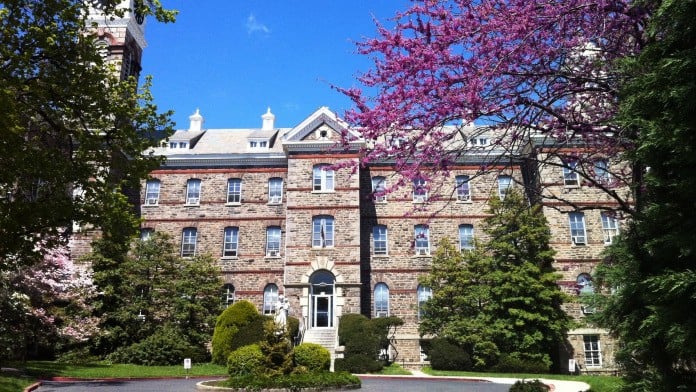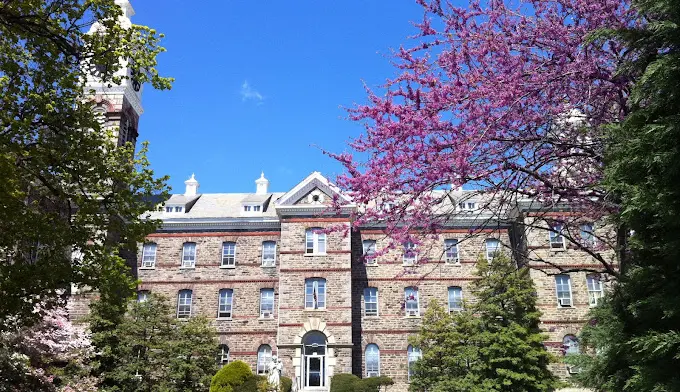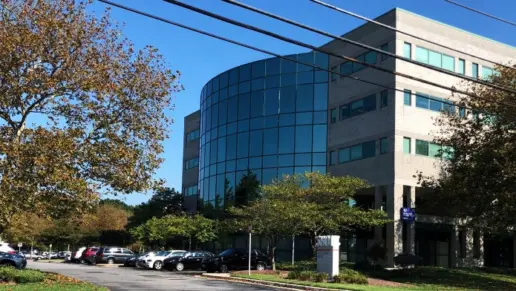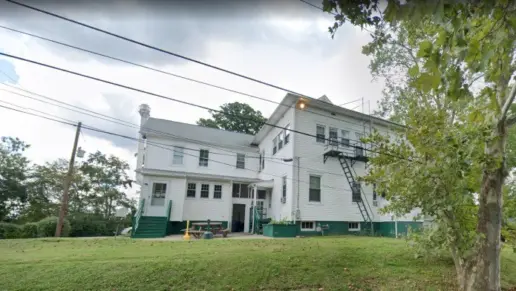Highly recommended; professional, supportive and very kind staff. Maryland Treatment Centers / Mountain Manor saved my life. I really didn't want to come here at first, but I really enjoyed my time at this treatment center and everyone was good to me. The staff treated me ...
About Mountain Manor Treatment Centers
Mountain Manor Treatment Centers part of the Maryland Treatment Centers network is an all inclusive rehab that offers substance abuse services for adolescents and adults in Baltimore, Maryland regardless of race, identity, gender, religion, and economic status. For more than 40 years, this addiction treatment center has provided holistic and integrative rehabilitation treatment for alcohol and drug addiction and co-occurring mental health issues. This detox center offers a comprehensive suite of services, including medical detox, inpatient rehab, outpatient programs, and aftercare support. Telehealth appointments are available.
The age-specific medication assisted treatment program typically lasts between 21 and 28 days, and a range of maintenance medications are used for relapse prevention, including buprenorphine, Suboxone, and Vivitrol. Addiction medicine specialists use modern treatments to ensure a better chance of recovery from addiction safely and comfortably. Care is also individualized to your needs, and counseling and therapy teams help you deal with withdrawal and recovery from substance abuse. A three to six month, long term inpatient rehab is also available, which provides patients with a safe, therapeutic, and structured environment where they can continue building their recovery skills. Here, clients in methadone maintenance are also welcomed, with the staff ensuring dosing and medications go uninterrupted. This rehab provides each person with a primary therapist or counselor to assist with continuing care plan development.
The Center also offers outpatient substance abuse therapy. The intensity and duration of therapy sessions and case management during these programs will depend on your needs. Both programs offer individual therapy, group therapy, or both. Aftercare services may include connections to outside providers that can help you continue your post-treatment recovery journey through medical services, transitional housing, food assistance, career counseling, and related resources.
They accept most private insurance plans. Speak to your individual provider to verify your coverage because out of network benefits can vary. Mountain Manor Treatment Centers is accredited by The Joint Commission.
Latest Reviews
Rehab Score
Gallery


Location
Accepted Insurance
Other Forms of Payment
Private insurance refers to any kind of healthcare coverage that isn't from the state or federal government. This includes individual and family plans offered by an employer or purchased from the Insurance Marketplace. Every plan will have different requirements and out of pocket costs so be sure to get the full details before you start treatment.
Self-pay involves paying for treatment out of your own pocket. You can use savings or credit, get a personal loan, or receive help from family and friends to fund your treatment. If you don't have insurance or your insurance plan doesn't cover a specific program, self-pay can help ensure you still get the care you need.
Financial aid can take many forms. Centers may have grants or scholarships available to clients who meet eligibility requirements. Programs that receive SAMHSA grants may have financial aid available for those who need treatment as well. Grants and scholarships can help you pai for treatment without having to repay.
Sliding scale payments are based on a client's income and family size. The goal is to make treatment affordable to everyone. By taking these factors into account, addiction recovery care providers help ensure that your treatment does not become a financial burden to you or your family, eliminating one barrier to care.
Military members, veterans, and eligible dependents have access to specific insurance programs that help them get the care they need. TRICARE and VA insurance can help you access low cost or no cost addiction and mental health treatment. Programs that accept military insurance often have targeted treatment focused on the unique challenges military members, veterans, and their families face.
Medicaid is a state based program that helps lower-income individuals and families pay for healthcare. Medicaid covers addiction treatment so those enrolled can use their coverage to pay for rehab. When a program accepts Medicaid the client often pays very little or nothing out of their own pocket.
Addiction Treatments
Levels of Care
Treatments
The goal of treatment for alcoholism is abstinence. Those with poor social support, poor motivation, or psychiatric disorders tend to relapse within a few years of treatment. For these people, success is measured by longer periods of abstinence, reduced use of alcohol, better health, and improved social functioning. Recovery and Maintenance are usually based on 12 step programs and AA meetings.
Once a person has become addicted to a substance, drug rehab in Maryland is often necessary to overcome that addiction. These programs provide the tools individuals need to manage the physical, mental, and emotional issues involved and begin a successful recovery journey.
Having a mental health disorder greatly increases the chances of having a substance disorder and vice versa. In fact, having both kinds of problems—“dual diagnosis” or co-occurring disorders—is the rule, not the exception. And modern research shows that treating both at the same time, in an integrated clinical approach, is the most beneficial for the patient. Mountain Manor Treatment Centers uses an evidence-based, research proven approach to co-occurring problems called Integrated Dual Disorder Treatment (IDDT).
A combined mental health and substance abuse rehab has the staff and resources available to handle individuals with both mental health and substance abuse issues. It can be challenging to determine where a specific symptom stems from (a mental health issue or an issue related to substance abuse), so mental health and substance abuse professionals are helpful in detangling symptoms and keeping treatment on track.
Opioid rehabs specialize in supporting those recovering from opioid addiction. They treat those suffering from addiction to illegal opioids like heroin, as well as prescription drugs like oxycodone. These centers typically combine both physical as well as mental and emotional support to help stop addiction. Physical support often includes medical detox and subsequent medical support (including medication), and mental support includes in-depth therapy to address the underlying causes of addiction.
Programs




Clinical Services
Cognitive Behavioral Therapy (CBT) is a therapy modality that focuses on the relationship between one's thoughts, feelings, and behaviors. It is used to establish and allow for healthy responses to thoughts and feelings (instead of unhealthy responses, like using drugs or alcohol). CBT has been proven effective for recovering addicts of all kinds, and is used to strengthen a patient's own self-awareness and ability to self-regulate. CBT allows individuals to monitor their own emotional state, become more adept at communicating with others, and manage stress without needing to engage in substance abuse.
During dialectical behavior therapy sessions, you'll review the challenges you faced the previous week and the feelings you experienced during those times. You and your therapist will engage in problem solving, discussing how you can handle those situations in the future for a better outcome. This involves keeping a diary throughout the week to track your emotions.
Group therapy is any therapeutic work that happens in a group (not one-on-one). There are a number of different group therapy modalities, including support groups, experiential therapy, psycho-education, and more. Group therapy involves treatment as well as processing interaction between group members.
In individual therapy, a patient meets one-on-one with a trained psychologist or counselor. Therapy is a pivotal part of effective substance abuse treatment, as it often covers root causes of addiction, including challenges faced by the patient in their social, family, and work/school life.
Motivational Interviewing (MI) is a clinical approach to helping people with substance abuse issues and other conditions shift behavior in positive ways. It is more goal-oriented than traditional psychotherapy, as MI counselors directly attempt to get clients to consider making behavioral change (rather than wait for them to come to conclusions themselves). Its primary purpose is to resolve ambivalence and help clients become able to make healthy choices freely.
The focus of trauma therapy is to heal the emotional wounds that occurred when you witnessed or experienced a traumatic event. Therapy helps you process this trauma emotionally and mentally so you develop healthier coping skills and improve your quality of life.
When you participate in couples therapy, you learn how to understand each other better, improve your communication skills, resolve conflict, and improve relationship satisfaction. Your therapist will help you develop skills in each of these areas to strengthen your relationship.
Research clearly demonstrates that recovery is far more successful and sustainable when loved ones like family members participate in rehab and substance abuse treatment. Genetic factors may be at play when it comes to drug and alcohol addiction, as well as mental health issues. Family dynamics often play a critical role in addiction triggers, and if properly educated, family members can be a strong source of support when it comes to rehabilitation.
Amenities
-
Private Setting
Staff & Accreditations
Staff

Child & Adolescent Psychiatry

Pediatric Medicine

Addiction Psychiatry
Accreditations

The Joint Commission, formerly known as JCAHO, is a nonprofit organization that accredits rehab organizations and programs. Founded in 1951, the Joint Commision's mission is to improve the quality of patient care and demonstrating the quality of patient care.
Joint Commission Accreditation: Yes
Contact Information
3800 Frederick Avenue
Baltimore, MD 21229







